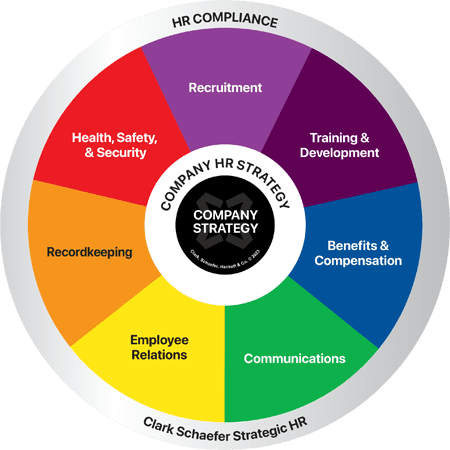Posts
Free Speech in the Workplace: Navigating Rights & Respect
Publishedin Communications, Employee Relations, HR Compliance Question of the Week
Investigations With Intention
Last Updatedin Employee Relations, HR Compliance Question of the Week
Can you be an Employee and Independent Contractor for the Same Company?
Last Updatedin HR Compliance Question of the Week
ADA Accommodations and Attendance
Last Updatedin HR Compliance Question of the Week
What Does In Loco Parentis Mean In Regards to an FMLA Claim?
Last Updatedin HR Compliance Question of the Week
What Should Ohio Employers Know About Marijuana in the Workplace?
Last Updatedin Health, Safety & Security Question of the Week
Contact Us
Clark Schaefer Strategic HR (CSSHR)
10856 Reed Hartman Hwy
Suite 225
Cincinnati, OH 45242

Clark Schaefer Strategic HR (CSSHR) is recognized by SHRM to offer Professional Development Credits (PDCs) for SHRM-CP® or SHRM-SCP® recertification activities.
The information provided on this website does not, and is not intended to, constitute legal advice; instead, all information, content, and materials available on this site are for general informational purposes only. Readers of this website should contact their attorney to obtain advice about their particular situation and relevant jurisdiction. This website contains links to other third-party websites. These links are only for the convenience of the reader, user or browser; Clark Schaefer Strategic HR (CSSHR) does not recommend or endorse the contents of the third-party sites.







